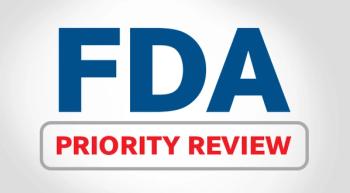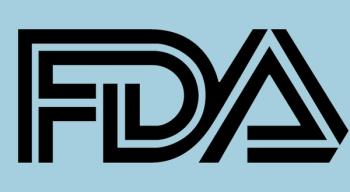
A three-drug treatment sparked complete responses in more than half of patients with high-risk chronic lymphocytic leukemia, who also tolerated the regimen well.

A three-drug treatment sparked complete responses in more than half of patients with high-risk chronic lymphocytic leukemia, who also tolerated the regimen well.

The Food and Drug Administration’s Oncologic Drugs Advisory Committee voted in favor of the agency approving belantamab mafodotin to treat patients with relapsed or refractory multiple myeloma who have previously received at least four therapies.

In this special edition of the “CURE Talks Cancer” podcast, we teamed up with our sister publication “OncLive on Air” to speak with a patient-doctor duo on myeloproliferative neoplasms.

Drug duos that hit kidney cancer with immunotherapy and targeted treatment offer a better alternative to single agents.

Morever, the next-generation androgen receptor improved overall survival, compared with placebo, in patients with nonmetastatic castration-resistant prostate cancer, according to updated findings of the phase 3 SPARTAN trial.

The Food and Drug Administration has granted an accelerated approval to Xpovio in combination with dexamethasone for the treatment of adult patients with relapsed/refractory multiple myeloma who have received more than four prior therapies.

The FDA has approved the combination of Darzalex with Revlimid and dexamethasone (DRd) for the treatment of patients with newly diagnosed multiple myeloma who are ineligible for autologous stem cell transplantation.

The FDA has granted a priority review designation to a supplemental biologics license application for Zejula for the treatment of certain patients with advanced ovarian, fallopian tube or primary peritoneal cancer.

The Food and Drug Administration has approved the NovoTTF-100L System in combination with pemetrexed and platinum-based chemotherapy for the front-line treatment of patients with unresectable, locally advanced or metastatic malignant pleural mesothelioma.

The FDA’s Oncologic Drugs Advisory Committee voted in favor of the agency approving pexidartinib to treat adult patients with symptomatic tenosynovial giant cell tumor – a rare, benign lesion that can be locally aggressive and often recurring.

The FDA has approved a supplemental new drug application for Tibsovo as a single agent for the first-line treatment of adult patients with IDH1-mutant acute myeloid leukemia who are 75 years and older or are ineligible to receive intensive chemotherapy.

The FDA has granted a priority review designation to a new drug application (NDA) for darolutamide for use as a treatment for patients with nonmetastatic castration-resistant prostate cancer.

The Food and Drug Administration approved Keytruda in combination with Inlyta for the frontline treatment of patients with advanced renal cell carcinoma.

The FDA has expanded the approval of Ibrance (palbociclib) capsules in combination with endocrine therapy for male patients with hormone receptor (HR)–positive, HER2-negative advanced or metastatic breast cancer.

The Food and Drug Administration (FDA) has granted an approval to the combination of Tecentriq (atezolizumab) with carboplatin and etoposide for the frontline treatment of patients with extensive-stage small cell lung cancer (ES-SCLC).

The Food and Drug Administration (FDA) has granted an approval to Trazimera (PF-05280014; trastuzumab-qyyp), a Herceptin (trastuzumab) biosimilar, to treat patients with HER2-overexpressing breast cancer as well as HER2-overexpressing metastatic gastric or gastroesophageal junction adenocarcinoma.

The U.S. Food and Drug Administration has expanded the approval of Cinvanti injectable emulsion to include a two-minute intravenous use for the prevention of acute and delayed chemotherapy-induced nausea and vomiting.

The FDA has approved subcutaneous use of Herceptin and Herceptin Hylecta in combination with chemotherapy for the treatment of select patients with HER2-positive early breast cancer.

Ian W. Flinn, M.D., Ph.D., discusses the use of Copiktra, which was approved in September for patients with relapsed/refractory chronic lymphocytic leukemia.

In topline findings from the phase 3 TITAN trial (NCT02489318) announced today by Janssen, Erleada (apalutamide) in combination with androgen deprivation therapy (ADT) significantly improved radiographic progression-free survival (rPFS) and overall survival (OS) versus placebo in patients with metastatic castration-sensitive prostate cancer.

The FDA has expanded the indication for Alimta (pemetrexed) injection in combination with Keytruda (pembrolizumab) and platinum-based chemotherapy for the first-line treatment of patients with metastatic nonsquamous non–small cell lung cancer (NSCLC) without EGFR or ALK alterations.

The FDA has granted an approval to Ontruzant (SB3; trastuzumab -dttb), a Herceptin (trastuzumab) biosimilar, for the treatment of patients with HER2-overexpressing breast cancer or metastatic gastric or gastroesophageal junction adenocarcinoma.

The Food and Drug Administration (FDA) has granted the investigational BTK inhibitor zanubrutinib (BGB-3111) a breakthrough therapy designation for the treatment of adult patients with mantle cell lymphoma (MCL) who have previously received at least one prior therapy, according to BeiGene, the company manufacturing the agent.

The FDA has approved Ultomiris (ravulizumab-cwvz) as an injection treatment of adult patients with paroxysmal nocturnal hemoglobinuria (PNH), a rare blood disorder that leads to hemolysis.

The Food and Drug Administration has approved Tecentriq (atezolizumab) for use in combination with Avastin (bevacizumab), carboplatin, paclitaxel, the treatment combination known as ABCP, for the first-line treatment of patients with metastatic nonsquamous non-small cell lung cancer (NSCLC).

The Food and Drug Administration has granted LOXO-292 a breakthrough therapy designation for the treatment of patients with advanced RET fusion–positive thyroid cancer who require systemic therapy, have progressed on prior treatment, and have no other acceptable alternative treatment options, according to a statement from Loxo Oncology, the developer of the selective RET inhibitor.

After 10 years without a new drug for liver cancer, two approvals and a promising pipeline are changing the landscape.

Checkpoint inhibitors continue to show promise in the treatment of patients with non-small cell lung cancer (NSCLC), but researchers are now exploring the efficacy of these agents when combined with radiation therapy (RT).

The liver cancer treatment field has remained stagnant for years, but new agents are destined to enter the field in the near future, Ghassan K. Abou-Alfa, M.D., says.

To take the next step in this research, investigators are now combining immunotherapies together, or with chemotherapy, to create added benefits and more durable, long-lasting responses.

Published: November 14th 2016 | Updated:

Published: November 16th 2016 | Updated:

Published: November 18th 2016 | Updated:

Published: November 21st 2016 | Updated:

Published: November 22nd 2016 | Updated:

Published: November 22nd 2016 | Updated: